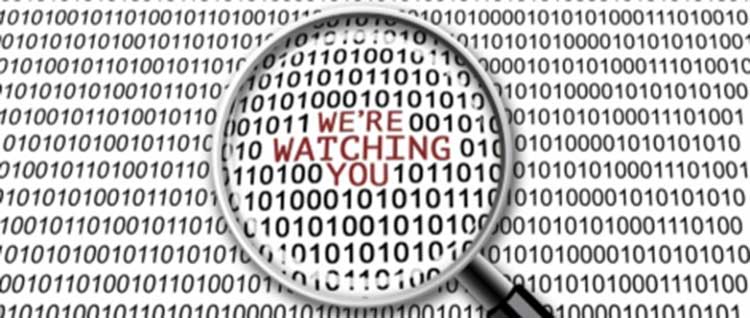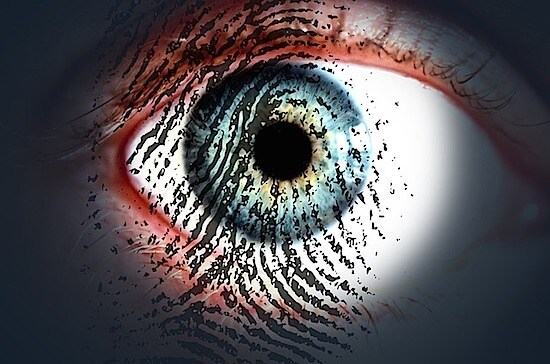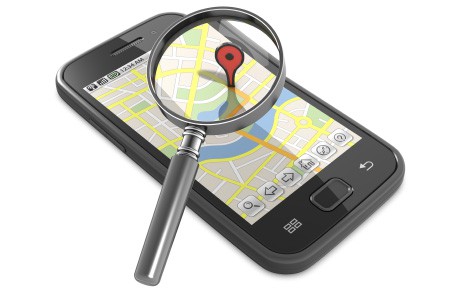
Partner with private firms to surveil domestic terrorists
A May 3, 2021, Washington datelined CNN report said:
The Biden administration is considering using outside firms to track extremist chatter by Americans online, an effort that would expand the government’s ability to gather intelligence but could draw criticism over surveillance of U.S. citizens.
The Department of Homeland Security is limited in how it can monitor citizens online without justification and is banned from activities like assuming false identities to gain access to private messaging apps used by extremist groups such as the Proud Boys or Oath Keepers.
Instead, federal authorities can only browse through unprotected information on social media sites like Twitter and Facebook and other open online platforms.
The plan being discussed inside DHS, according to multiple sources, would, in effect, allow the department to circumvent those limits. A source familiar with the effort said it is not about decrypting data but rather using outside entities who can legally access these private groups to gather large amounts of information that could help DHS identify key narratives as they emerge.
By partnering with research firms who have more visibility in this space, the DHS could produce information that would likely be beneficial to both it and the FBI, which cannot monitor US citizens in this way without first getting a warrant or having the pretext of an ongoing investigation. The CIA and NSA are also limited on collecting intelligence domestically.
It would, however, involve empowering a unit at DHS that is already under fierce scrutiny for its bungled handling of the Portland riots last summer, an episode that included collecting intelligence reports on journalists and unmasking private citizens, according to a source familiar with a recent internal report on the matter.
That leaves the Biden administration with a key question: how to address mistakes made during the Trump administration while also finding ways to respond to what critics say were blatant failures by US intelligence agencies to act on warnings ahead of the January 6 attack on the US Capitol?
“There’s a tension between wanting to empower [DHS’s intelligence office] to do this kind of work around domestic terrorism on the one hand and then on the other hand the misuse of its capabilities during the summer of 2020, gives a lot of people on the Hill pause {when it comes to} potentially giving them new authorities, capabilities or resources,” a Senate aide told CNN.
The report said:
DHS officials are exploring ways to enhance the department’s information gathering within the bounds of its current authorities, multiple sources told CNN. The department is coordinating with the National Security Council and FBI as part of the effort, sources added.
“There was only limited awareness before January 6 of what violent extremists were planning through social media,” said Tom Warrick, a senior fellow at the Atlantic Council who served as DHS Deputy Assistant Secretary for Counterterrorism Policy from 2008 until 2019 and has decades of experience as a career government official at agencies including the State Department.
Warrick added he would expect DHS to “explore whether contractors could help them understand plots and trends” emerging online.
“Whatever gets approved and implemented has to comply with established laws,” he said, noting that DHS can only use overt methods to gather information from social media or collect information that is publicly available.
Researchers who already monitor such activity online could act as middlemen to obtain the information. DHS officials maintain the materials provided would only consist of broad summaries or analysis of narratives that are emerging on these sites and would not be used to target specific individuals.
But some of the research firms and non-profit groups under consideration by the DHS periodically use covert identities to access private social media groups like Telegram, and others used by domestic extremist groups. That thrusts DHS into a potential legal gray area even as it plugs an intelligence gap that critics say contributed to the failure to predict the assault on the Capitol.
Much of the planning for the Capitol Hill riot appeared out in the open, on social media platforms and on encrypted apps available to anyone with an internet connection. The DHS is trying to get a better sense of “narratives” that might lead to violence as they emerge across those channels, according to two DHS officials.
But tracking those narratives, particularly in the wake of January 6, increasingly requires access to private groups on encrypted apps as extremist groups migrate from more forward-facing sites like Facebook.
By the time narratives are appearing on Facebook, it is usually too late, one DHS official told CNN.
“Domestic violent extremists are really adaptive and innovative. We see them not only moving to encrypted platforms, but obviously couching their language so they don’t trigger any kind of red flag on any platforms,” the official added.
Outsourcing some information gathering to outside firms would give DHS the benefit of tactics that it is not legally able to do in-house, such as using false personas to gain access to private groups used by suspected extremists, sources say.
The department is also working to expand its ability to collect information from public-facing social media sites where users’ posts offered clear warning signs about potential violence ahead of the January 6 attack, but were either ignored or underestimated by security officials prior to that date.
But any effort by the intelligence community to wade into the murky area of domestic spying is fraught with political risks, current and former officials say.
Gathering information on US citizens – no matter how abhorrent their beliefs – raises instant constitutional and legal challenges. Civil liberties advocates and privacy hawks have long criticized any efforts to collect even publicly available information on Americans in bulk as a violation of Americans’ First and Fourth Amendment rights.
If they can find willing external partners that would help provide access to private groups on these encrypted apps, DHS and its federal partners, including the FBI, would be able to legally identify potential domestic terrorists and access information that could inform investigative efforts, a source familiar with the effort told CNN.
FBI director Christopher Wray has been emphatic during recent public testimony that the bureau does not investigate ideologies or even conspiracy theories in and of themselves, but restricts its social media monitoring to cases where they believe a crime, or potential crime, was committed.
But if the DHS could help provide a broad picture of who was perpetuating the “narratives” of concern, the FBI could theoretically use that pool of information to focus on specific individuals if there is enough evidence of a potential crime to legally do so, the source added, noting the two agencies are working closely with one another in this area.
“What do you do about ideology that’s leading to violence? Do you have to wait until it leads to violence?” said one former senior intelligence official.
“We are exploring with our lawyers, civil rights, civil liberties and privacy colleagues, how we can make use of outside expertise,” the DHS official added, referring to the department’s efforts related to encrypted applications.
The problem with that, the source familiar with the effort acknowledged, is DHS would be operating in a space that would likely make civil liberties’ advocates, not to mention conservatives’, hair stand on end.
The CNN report added:
Privacy advocates on the Hill have already questioned the Defense Intelligence Agency’s efforts to get around restrictions on collecting Americans’ location data without a warrant by purchasing that data from commercially-available databases.
Even as the DHS eyes a more robust use of its intelligence authorities, it continues to face fierce scrutiny on Capitol Hill over its handling of the Portland protests last summer — raising the possibility that at least some lawmakers will push back on the effort.
The department – then led by Trump appointees but staffed by career officials, some of whom remain on the job – collected and disseminated open source reports on U.S. journalists who were publicly reporting on the protests. The department also sent analysts to Portland to question protesters, according to a public statement by House Intelligence Committee Chairman Adam Schiff, D-Calif. – a tactic seen by some as a government intrusion on Americans’ First Amendment right to protest. Schiff also revealed that the DHS that protects federal property had requested that analysts “extract data” from phones seized from protesters without a warrant, a request that went unfulfilled.
“There were a number of other reports that were issued that shouldn’t have been issued,” DHS’ acting intelligence chief, Joseph Maher, told the committee in October.
DHS’s general counsel conducted its own administrative review of the Portland collection practices, which it delivered to the Hill on January 6 – purely coincidentally. In addition to the concerns about improper collection tradecraft and unmasking – in which officials request to expose surveilled U.S. citizens’ identity internally, a sometimes-controversial request – the review also found that department leaders created a command climate that created a false sense of urgency and sent untrained, inexperienced collectors to Portland, according to a source familiar with the contents of the report.
A DHS spokesperson said that “upon learning of alleged improper activities at the Office of Intelligence and Analysis (I&A), DHS took immediate action to review I&A activities, including to identify areas that needed resolution and ensure I&A leadership fosters a work environment that encourages diversity of thought and reinforces I&A’s duty to preserve the civil rights, civil liberties, and privacy of all persons and communities.”
The House Intelligence Committee, which is conducting an ongoing investigation of its own, has also expressed frustration that the department has failed to provide documents it has requested as part of the probe.
“Despite a subpoena from the Committee, the Department has not yet turned over most of the responsive documents,” a committee official told CNN. “We look forward to the Department’s cooperation with our investigation, so we can complete our work and make recommendations for necessary reforms.”
The office is also the subject of a pair of unrelated inspector general probes, one related to possible failures leading up to January 6, and one related to alleged political interference with an intelligence notification.
I&A has long struggled to carve out a niche for itself within the intelligence community. When it comes to domestic terrorism, many of their authorities overlap with the National Counterterrorism Center – raising questions about what I&A can do better than the more robust NCTC.
“It’s perceived by some as just a resource suck that doesn’t add tremendous value,” said one former senior intelligence official.
Counter Russian “propaganda”
The Group of Seven (G7) richest countries will look at a proposal to build a rapid response mechanism to counter Russian “propaganda” and disinformation, British Foreign Secretary Dominic Raab told Reuters.
Speaking ahead of a G7 foreign ministers’ meeting in London, the first such in-person meeting for two years, Raab said the UK was “getting the G7 to come together with a rapid rebuttal mechanism” to counter Russian misinformation.
“So that when we see these lies and propaganda or fake news being put out there, we can – not just individually, but come together to provide a rebuttal and frankly to provide the truth, for the people of this country but also in Russia or China or around the world,” Raab said.
Russia and China are trying to sow mistrust across the West, whether by spreading disinformation in elections or by spreading lies about COVID-19 vaccines, according to British, U.S. and European security officials.
Russia denies it is meddling beyond its borders and says the West is gripped by anti-Russian hysteria.
“It’s time to think of why the countries which are sick to the core with propaganda, and which used it more than once to justify armed intervention and toppling of governments accuse our country of their own sins,” Russian Foreign Ministry spokeswoman Maria Zakharova said on social media after Raab’s comments.
China says the West is a bully and that its leaders have a post-imperial mindset that makes them feel they can act like global policemen.
Britain has identified Russia as the biggest threat to its security though it views China as its greatest long-term challenge, militarily, economically and technologically.
“The scope for intense global cooperation, international cooperation with our American partners and indeed the wider G7, that we are convening this week has never been greater,” Raab said.
The G7 members are Britain, the United States, Canada, France, Germany, Italy and Japan and their combined gross domestic product (GDP) is about $40 trillion – a little less than half of the global economy.
British and U.S. officials have expressed concern in recent months about growing strategic cooperation between Russia, the world’s largest country by territory, and China, the world’s fastest-growing major economy.
Asked about the concerns, Raab said: “What matters to us most is that we broaden the international caucus of like-minded countries that stand up for open societies, human rights and democracy, that stand for open trade.”
Raab said some of the barriers between the G7 and other like-minded countries needed to be broken down, so that there could be a broader network of allies that stood up for open markets and democracy.
Britain has invited India, Australia and South Korea to attend this week’s meeting, running from Monday to Wednesday, and the full leaders’ summit in June.
Asked whether Britain could seek to join a separate grouping known as the Quad – the U.S., Japan, Australia and India – Raab said there was no concrete proposal as yet, but Britain was looking at ways to engage more in the Indo-Pacific.
Snowden on World Press Freedom Day
As US President Joe Biden marked World Press Freedom Day with praise of heroic independent media, his government still seeks to jail Julian Assange of WikiLeaks for the act of journalism, said NSA whistleblower Edward Snowden.
The famed national security whistleblower took the U.S. administration to task on Monday, after U.S. Secretary of State Antony Blinken boasted of the U.S. devotion to “press freedom” and “the safety of journalists worldwide.” Assange’s ongoing prosecution is impossible to square with those vows, Snowden said.
“This would be more persuasive if the White House weren’t aggressively seeking an 175-year sentence for the publisher of award-winning journalism of global importance – despite pleas from every significant press freedom and human rights organization,” he tweeted.
https://t.co/6QMuajTS8ohttps://t.co/Rb7AoQ8Out— Edward Snowden (@Snowden) May 3, 2021
While Biden himself spoke of the importance of “truth-tellers who refuse to be intimidated” in celebrating World Press Freedom Day, his administration continues to pursue an 18-count indictment against the WikiLeaks publisher, including charges under the Espionage Act brought by the Trump administration in 2019.
Altogether, Assange faces nearly two centuries behind bars, with most charges linked to the publication of classified material – such as the Iraq and Afghan war logs – leaked in 2010 by former army intelligence analyst Chelsea Manning.
Though the newly installed administration has reversed many of Trump’s policies, it is continuing to seek Assange’s extradition from the UK, over a chorus of objections from press freedom groups.
In a letter addressed to Biden’s Justice Department earlier this year, some two dozen civil liberties groups – including the Freedom of the Press Foundation, the ACLU, Amnesty International and the Committee to Protect Journalists – argued that Assange’s prosecution represents a grave threat to press freedom as “much of the conduct described in the indictment is conduct that journalists engage in routinely.”
Snowden was joined by a number of journalists and activists demanding Assange’s release on World Press Freedom Day, among them Australian MP Andrew Wilkie, as well as the mother of Assange’s children, Stella Morris.
“It is no overstatement to say that the use of the 1917 Espionage Act against Julian is the single biggest, most urgent threat to press freedom and a free society,” she said.
She said: It is also profoundly wrong. Julian isn’t simply just innocent. He is being punished for doing the right thing, for exposing the wrongful killing of journalists and of thousands of civilians, for documenting war crimes.
WikiLeaks said: “Julian says that the best way to obtain justice is by exposing injustice. What he represents goes to the heart of what it means to live in a democracy. Julians indictment is the single biggest, most urgent threat to press freedom and a free democratic society” #FreeAssangeNOWpic.twitter.com/IzDoCGHRZ3
— WikiLeaks (@wikileaks) May 3, 2021
Assange was arrested in April 2019, after Ecuador revoked his asylum. He has been locked up at Belmarsh maximum security prison in South London ever since, long after his sentence for skipping bail had expired, as the extradition process drags on.
Julian Assange remains incarcerated in a high-security prison for revealing the truth about wartime atrocities, despite never being convicted of a crime – his case makes a mockery of claims about press freedom. https://t.co/i5EGWpbELK
— Tribune (@tribunemagazine) May 3, 2021
GET COUNTERCURRENTS DAILY NEWSLETTER STRAIGHT TO YOUR INBOX














































